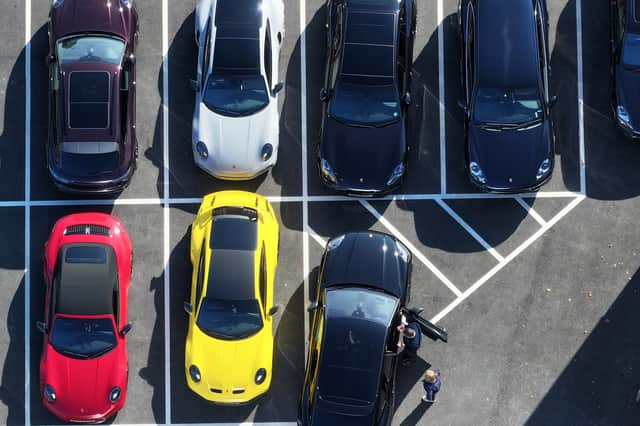The UK is split down the middle: cutting back but looking for luxury
and live on Freeview channel 276
We are now - on the surface - a nation of opposites.
On the one hand, we have learned to shop at Aldi and to become thrifty as the cost-of-living crisis continues to bite. YouGov has just reported that Aldi, is the nation's most popular supermarket, and it has been named as the UK's cheapest every month for more than a year now. According to Kantar, Lidl's market share has grown from 3.1 per cent to 7.6 per cent in a decade, and Aldi's rise has been even more pronounced - from 3.8 per cent to 9.9 per cent.
And over the last 18 months we've constantly heard tales of penury, from the tragic - the pensioners who can't put the heating on and the parents skipping meals so their children can eat - to the mockable, such as the Sunday supplements' financial pages which hear from families who "can only afford one foreign holiday this year". But it's undeniable that everyone is feeling the pinch - annual salary increases that in previous years would have been very generous do not come close to matching current inflation rates, even as these slow, and so in effect everyone is becoming poorer.
Advertisement
Hide AdAdvertisement
Hide AdBut we see today that there has been a rush towards luxury cars in recent times, as brands once seen as only for the golf club set, such as Porsche and Lexus are now being bought far more widely. This doesn't point to a nation secretly flush with cash though, it is far more attributable to the boom in car financing that has been seen in the last decade. Car dealerships are so keen to lock customers in for the long term that taking up finance, not providing cash upfront, is the way to secure discounts on the forecourt. People no longer worry that they won't own their car outright, as they can stay on their deal and switch it to a new model when they want.


So actually, this increase in luxury cars is attributable to the fact that we have less money lying around to be used as a lump sum - we're essentially buying things on credit. So it can be seen as another - slightly paradoxical - symptom of harder times. Another factor is that the price of used cars has rocketed in four years - fewer new cars have rolled off the factory lines because of the knock-on effect from the Covid lockdown, the Ukraine War and semi-conductor shortages, and so supply-and-demand economics have seen good quality used cars increase in value. So you may as well buy a new car as a second-hand one, essentially.


But the interesting thing is that drivers are choosing the Land Rover over the Fiat, and the Audi over the Ford. Why are we not satisfied with the less-glamorous-but-still-cheaper-ranges? And the answer, perhaps, is in the sense of a treat. When you can't afford to go on holiday, you can't afford to move house, you have less money each month, perhaps deciding to economise elsewhere to drive the motor of your dreams - when on finance it may only be an extra £50 a month - is the answer. As Oscar Wilde didn't say, we're all in the gutter, but some of us are looking at the cars.
Comment Guidelines
National World encourages reader discussion on our stories. User feedback, insights and back-and-forth exchanges add a rich layer of context to reporting. Please review our Community Guidelines before commenting.